|
By Nadia Dalimonte Rashida Jones and Bill Murray in On the Rocks (2020) At the melancholy core of Sofia Coppola’s whimsical new film, On the Rocks, is a complex father-daughter bond that warms up the screen. It’s a great character study of two people in quick, reflective, and often disagreeing banter in service of a bigger mystery to be solved. Much like the rest of Coppola’s filmography, there’s a quiet control and charm to be found in this story. She enjoyably works through subjects of relationships, generational gaps, and the institution of marriage. On the surface, her spin on a screwball comedy with a simple plot point feels slight. But in sitting with the film, the qualities that make Sofia Coppola an intriguing filmmaker pour out.
The story centers on Laura (Rashida Jones), a successful New York writer faced with a sudden suspicion that her husband Dean (Marlon Wayans) might be having an affair. She confides in her philandering, larger-than-life father Felix (Bill Murray), who tells her the words she doesn’t want to hear. Nearly certain that she’s being cheated on, he convinces her that in order to get ahead of the situation, spying on Dean is the best course of action. The film plays out as a father-daughter journey based around the two of them trying to justify their suspicions. But the more they focus on Dean, the more we see their own personal insecurities projected onto Laura’s marriage. The infidelity plot point could have been resolved, or at the very least addressed, with a conversation early on. There are a few moments when Laura asks Dean a question or two, searching for some clarity, though never expanding into the question she really wants to ask. But the film identifies in the protagonists a deep level of uncertainty they carry about themselves, which pushes them further away from the truth. Laura is uncertain in who she is as a writer. As a mother of two young children, her parental responsibilities eat up her evenings. She spends a good chunk of time in her office during the day trying to write, but can’t break through the block. When faced with the possibility that her marriage is on the rocks, she puts writing on pause and calls her father to ask his opinion. While she remains doubtful, he automatically assumes Dean is cheating on her and is determined they get to the bottom of it. Felix flies from Paris to New York for the said purpose of dealing with this situation, but what he really wants is to spend quality time with his daughter. The idea that her marriage is in trouble gives him the opportunity to swoop in and relay all his archaic knowledge on relationships. Felix also comes from a place of anxiety within himself. His actions are very much driven by his own guilt; the pain he brought onto his family still lives within him, and he projects fears of repetitive behaviour onto Laura’s marriage. By focusing on the complexities of this father-daughter relationship, Coppola brings an interesting character drama to life. So much of the film is about how relationships can be so reflective of the people in them, and how easily someone can misjudge their partner based on personal fears or insecurities. Rashida Jones does a wonderful job portraying the sincerity and trickiness of loving a complicated person in a complicated time. It’s clear as day that Laura and her father are not on the same page, and she loves him despite his shortcomings. Jones really brings you into the touch and go headspace of someone whose marriage and entire life as she knows it might completely fall apart. Her father Felix is so antiquated in his views, and spends most of his time indiscreetly trying to influence his daughter in all the wrong ways. He’s a philanderer of an old generation who thinks that all men are just like him. The film needed Bill Murray’s lightness and larger-than-life quality to bring an unlikeable role to life. Murray himself, an enigmatic force of nature with hearty charisma, fits Felix like a glove. His shorthand with Coppola also shows on the screen; as was the case of Lost in Translation, she brings out a side to him that other filmmakers can’t and it’s always a delight to watch. The more conversations Laura and Felix share, the more he’s able to persuade her that her marriage is indeed on the rocks. His persuasion and her uncertainty take them all over New York to follow her husband, which puts them in some adventurous spur-of-the-moment scenarios including a fun “incognito” car chase. The chase scene is a perfect example of how Murray’s charm works his magic in this film. Coppola also establishes the New York setting in a great way. New York becomes a character in the film, and in her voyeuristic approach to the city, there are many “fly on the wall” moments where you feel like you’re zooming through the streets, following the characters. Accompanying the film is a beautiful jazz soundtrack that brings a lot of energy to the setting. A recurring Michael Nyman score in particular compliments the story really well and gives it an optimistic feeling. While the film shines as a father-daughter story that explores all the generational complexities between them, the final act stumbles. Coppola finds something meaningful to say through all the intimate, reflective conversations but the focus always comes back to the audience guessing whether or not Dean cheated. There’s a far more interesting story in how marriages can lull after some time, and how reaching for success in a busy lifestyle can take a toll on relationships back home. These are elements Coppola touches on, but the building blocks of the story all lead to giving the audience an answer to the question of Dean's fidelity, and results in a totally flat ending. But in sitting with all the behavioral and generational themes that Coppola explores, there is something about On the Rocks that lingers. The charming chemistry between Murray and Jones brings a lot of life into the story, and makes the film resonate as a character study that reveals more than what the characters bargained for.
0 Comments
By Nadia Dalimonte Kristen Stewart and Mackenzie Davis in Happiest Season (2020) ’Tis the season for Happiest Season! Clea DuVall’s queer holiday rom-com is a warm and bright story about two women falling in love around Christmastime. The story explores specific representation and a universal theme of being home for the holidays while trying to navigate family expectations and yearn for acceptance. This is a film that really feels like Christmas, in the sense that DuVall explores many different elements of visiting family during a time of year that stresses the importance of togetherness. As bouncy and funny as the film is, there are also incredibly moving moments that radiate from a place of authenticity and speak to how people have their own personal coming out stories unique to them. Happiest Season welcomes an all-star cast of characters who are each revolving around one woman’s journey of coming out.
The film follows the relationship between Harper (Mackenzie Davis) and her girlfriend Abby (Kristen Stewart) at a point when they are falling more and more in love with each other. Harper adores Christmastime; the lights, the ambience, all that jolly jazz. Abby is reluctant to celebrate; when she was 19, her parents died around the holidays, so each passing year she avoids getting involved in Christmasy activities. One twinkly night in a spur of the moment, Harper invites Abby to spend the holidays at her parents’ house. Abby gets over some hesitation and not only agrees but makes plans to propose on Christmas morning. She wants to declare her love for Harper to everyone, but her excitement is upended when she finds out Harper hasn't come out to her parents yet. What follows is an awkward maneuvering around family members to maintain secrecy as Abby agrees to Harper’s proposal that the two hide their identities just for a few days. So, Abby is introduced as an ‘orphan friend’. This dilemma takes on a life of its own in the film. We see Abby play along for the sake of supporting the woman she loves, Harper, who is not yet ready to express her true self. The pressures of validation and expectation are especially heightened within Harper’s family. Her oblivious father Ted Caldwell (Victor Garber) is aspiring to become mayor, and her picture-ready mother Tipper Caldwell (Mary Steenburgen) documents their ‘perfect’ family life on social media to garner acceptance for political success. From Harper’s perspective, she fears coming out would turn the family dynamics upside down and interfere with what is expected of her. DuVall perfectly captures the weight of feeling pressured to make your loved ones proud and feeling worried that you’ll lose their love if you let them down. It’s an ongoing theme that the other characters exhibit as well (in different ways), namely Harper’s sisters Jane (Mary Holland) and Sloane (Alison Brie). Jane, who’s great with routers and printers, brings an infectious bouncy energy to the family. Holland, who co-wrote the film with DuVall, plays Jane with such joyful brilliance. Her character has a deep level of self-acceptance, and it is this peace of self that makes her the family outcast as people hesitate to accept her. Meanwhile Sloane, along with her husband Eric (Burl Moseley), quit a fancy job to start a gift basket business. They have two kids and are altogether the picturesque family unit, but underneath her uptight demeanor she has a secret of her own. All of these family dynamics play out as Abby tries to find her footing and stay true to herself in spite of the Caldwell game of charades. Her best friend and confidant John (Dan Levy), gives her moral support from the sidelines. Levy, hot off the heels of Schitt’s Creek success, brings his familiar wit and impeccable timing to the film. His character’s expert tracking skills eventually lead him to the Caldwell home in the final act, during which he and Stewart share a stunning scene. He personalizes a moving monologue about how everyone’s coming out story is different, and in that moment, the emotional core of the film pours out. As the narrative of Happiest Season surrounds Harper’s journey, characters from her past pop out of the woodwork and give some backstory to the hurdle she’s trying to jump over. Her ex girlfriend Riley (Aubrey Plaza), who has the best introduction in the film, strikes up a bond with Abby and through their interactions, we learn more about how Harper’s coming-out story affects those around her. One of the most intelligent and engaging aspects of the film is how the writing validates Harper’s coming-out experience, even though on the surface her character makes some unfortunate decisions. DuVall also makes the good call of focusing on how the family dynamics affect Abby, because this experience does alter her perspective and naturally brings into question her feelings towards Harper. As a result, we see another avenue where the story could go with the inclusion of Plaza’s character. The more distant Abby feels from Harper, the more she feels drawn to Riley and we eventually learn why Riley can identify with Abby’s situation. The relationship dynamics are well written and brought to life with the performances. Davis is great, Plaza is a scene stealer, and Stewart truly anchors the film. Happiest Season is genuinely funny and stands out in countless ways, most of all with a smart screenplay. The writing is heartfelt in portraying the complexities of self-acceptance and generous in bringing pure joy to the screen. The performances share a love and care for creating an enjoyable, sweet rom-com that will become a holiday classic. By Nadia Dalimonte Sydney Sweeney in Nocturne (2020) The dark side of ambition is explored within the competitive nature of classical music studies in the film Nocturne, written and directed by Zu Quirke. The protagonist, Juliet (Sydney Sweeney), is surrounded by like-minded gifted students vying to stand out with instrumental identity. But there is no one experiencing the competition for greatness quite like Juliet, whose innocent pursuit of perfection takes a devilish turn and blurs reality as she knows it. Nocturne plays in a vein similar to Darren Aronofsky’s Black Swan in that the film delves into the psychological horror of wanting to be perfect. Besides looking at complicated student-teacher relationships, Quirke’s narrative focuses on a young woman who makes an emotional pact with jealousy and a supernatural pact with the devil in order to become the best.
The story follows Juliet (Sweeney), a quiet pianist who attends an elite music academy with her Juilliard-bound, social butterfly twin sister Vivian (Madison Iseman). As Vivian continues to excel with prodigy status, Juliet wrestles with being seen as the understudy who plays second fiddle to her more accomplished sister. It seems the more Juliet tries, the more she goes unnoticed, until one day she discovers a notebook belonging to a deceased prodigy student named Moira (Ji Eun Hwang). The beginning of the film reveals Moira’s death, and her demise leads to an ominous, symbolic path that finds its way to Juliet. The notebook discovery comes at a time when Juliet is particularly vulnerable to the budding jealousy felt towards Vivian, and soon the mysterious inscriptions on Moira’s pages cast a haunting cloud over Juliet’s soul. Nocturne walks a fine tightrope of paying homage to horrors of the past while trying to stick the landing and create a new page in the notebook of psychological thrillers. The film expands on the notion that in order to achieve greatness, one must be willing to sacrifice. With that idea comes the question, how far is one person willing to go? Juliet pushes the boundaries to dangerous lengths and becomes a more enigmatic protagonist in the process, as she takes the audience on a possessed journey that sees the otherworldly collide with real life. Quirke establishes a strong sense of setting through the aesthetics, characters, and world building. It is crystal clear that the characters’ lives are revolving around measures of success at the music academy. The film is a good exploration of how striving for perfection can completely take over a person’s mind and slowly chip away at a person’s soul. The film also gives off a slightly aloof feeling by focusing on Juliet’s more reserved persona and bringing pages of Moira’s mysterious notebook to light. There is a disturbing parallel drawn between the two characters; things take an odd turn as Juliet starts to experience scenarios that mirror Moira’s disturbing drawings. After each scenario, Juliet rushes back to the notebook and sure enough, it’s as if the course of her life is pre-determined on the page. While there is nothing new about Faustian themes of ambition and surrender of morality, Quirke tries to shake things up a bit by incorporating these supernatural elements into the mix. A lot of time is spent on establishing the relationship between Juliet and Vivian as they behave differently in search of perfection within the same world. This is certainly time well spent, given a lot of the film’s emotional core lies within the sibling dynamics. More often than not though, the spooky elements tend to feel more thrown in rather than embedded into the story. Moira’s tragic past is constantly linked to Juliet’s present experiences, yet when haunting images of Moira appear, it feels jarringly out of place. Not enough time is spent delving deep into the parallels between both characters beyond the fact that they’re both pianists who made a devilish pact. While the screenplay doesn’t feel fully realized, watching the story play out through Juliet’s eyes is intriguing. The film cements itself as a promising vehicle for Sydney Sweeney, known for her excellent turn as Cassie Howard in HBO’s award-winning Euphoria. In Nocturne, she delivers a committed and compelling performance out of derivative material. She instills a magnificent sense of paranoia that stretches from innocent ambition to warped possession, as she pushes everyone out of her way while in a dark trance of ambition. The moving parts of this story may not always come to fruition, but Zu Quirke sets the stage for an entertaining psychological thriller with a truly great performance surpassing potential at the center. By Nadia Dalimonte With the closure of theaters across Canada, and distributors having to pivot often for films to find a virtual home, release dates are moving around a lot more these days. Last week I published the Best of 2020*, and thought it best to follow up with where audiences can watch these films in Canada. This list is of course subject to change, as we wait for some films to land, so be sure to check in every now and then.
Nomadland (dir. Chloé Zhao) - To be determined The Assistant (dir. Kitty Green) - Crave TV; iTunes Shiva Baby (dir. Emma Seligman) - To be determined Wolfwalkers (dir. Tomm Moore and Ross Stewart) - Apple TV beginning December 11, 2020 Never Rarely Sometimes Always (dir. Eliza Hittman) - Crave TV; iTunes The Forty-Year-Old Version (dir. Radha Blank) - Netflix Miss Juneteenth (dir. Channing Godfrey Peoples) - iTunes Another Round (dir. Thomas Vinterberg) - Apple TV The Invisible Man (dir. Leigh Whannell) - Crave TV; iTunes Yes, God, Yes (dir. Karen Maine) - iTunes starting December 8, 2020 Beans (dir. Tracey Deer) - To be determined One Night in Miami (dir. Regina King) - Amazon Prime starting January 15, 2021 The Surrogate (dir. Jeremy Hersh) - iTunes Definition Please (dir. Sujata Day) - Digital TIFF Bell Lightbox Lingua Franca (dir. Isabel Sandoval) - Netflix First Cow (dir. Kelly Reichardt) - iTunes Emma. (dir. Autumn de Wilde) - Crave TV; iTunes The Life Ahead (dir. Edoardo Ponti) - Netflix She Dies Tomorrow (dir. Amy Seimetz) - iTunes Residue (dir. Merawi Gerima) - Netflix Host (dir. Rob Savage) - Shudder His House (dir. Remi Weekes) - Netflix Babyteeth (dir. Shannon Murphy) - iTunes Kajillionaire (dir. Miranda July) - iTunes Birds of Prey (dir. Cathy Yan) - Crave TV; iTunes Shirley (dir. Josephine Decker) - Amazon Prime The Old Guard (dir. Gina Prince-Bythewood) - Netflix Over the Moon (dir. Glen Keane) - Netflix I'm Thinking of Ending Things (dir. Charlie Kaufman) - Netflix Borat Subsequent Movie Film (dir. Jason Woliner) - Amazon Prime *Best of 2020, compiled by Nadia Dalimonte By Nadia Dalimonte The year is coming to an end, and winter is around the corner. While theaters remain closed in many areas across the country, films still have a home in quarantine thanks to digital and streaming releases. A cozy night at home with a good story or two? Yes please. It’s time to revisit the best films of 2020, most of which are directed by women. Here are 30 gems curated by Nadia for Earth to Films. Nomadland Nomadland is a beautiful gem that got under my skin within minutes. Chloé Zhao explores a nomad character study and the cycle of human life in a gorgeous, natural landscape that sets the story like poetry. Zhao stirringly captures feelings of rootlessness and togetherness within the margins of society, in the aftermath of the Great Recession. The Assistant Written and directed by Kitty Green, The Assistant needs to be heard loud and clear. This is an urgent post-Me Too depiction of human conflict and complicity, featuring incredible exposition and a stunning lead performance by Julia Garner. Shiva Baby Emma Seligman’s stunning debut feature Shiva Baby is a funny, invigorating, fully realized pressure cooker. Rachel Sennott is magnificent in the lead role; she’s surrounded by a pitch perfect ensemble cast who each play off one another so well. The sense of humour is a delight, providing constant laughs and lines so great you must keep up because you won’t want to miss them. Wolfwalkers How enchanting! Wolfwalkers is a magical Irish saga of love, friendship, and women empowerment. Mature and dedicated storytelling bring environmental and philosophical themes to a beautiful fairytale adventure. The delicate watercolour animation and intricate swirling lines are gorgeous. Characters flow into and out of frames like magic. Never Rarely Sometimes Always Often times it’s the smallest interactions between people, and feelings left unsaid, that leave the greatest impact. Eliza Hittman’s Never Rarely Sometimes Always is a masterpiece, featuring a show stopping debut performance by Sidney Flanigan. The Forty-Year-Old Version Radha Blank’s funny and passionate directorial debut feature, The Forty-Year-Old Version, is by far one of the best films of the year. Blank, who stars in the film and wrote the screenplay, is an incredible storyteller with a clear vision about artistic expression. At the heart of this story, beautifully directed in black and white, is an authentic voice who needs to be heard. Miss Juneteenth Written and directed by Channing Godfrey Peoples, Miss Juneteenth is a beautifully made story with strong character building and a fantastic cast. Nicole Beharie is absolutely incredible in the film as she exudes an understated and magnetic screen presence that you’ll want to watch more of. Another Round Another Round leaves a lasting impression about the lengths that people dare go in order to pull themselves out of a midlife crisis and feel something again. Mads Mikkelsen gives a remarkable lead performance in a thoughtful film that follows four high school teachers who start a drinking experiment to liven up their lives The Invisible Man The Invisible Man is a fantastic combination of horror, thriller, and sci-fi. Stunning direction and a fully committed performance by Elisabeth Moss create an anxiety-inducing experience from start to finish. Yes, God, Yes Karen Maine’s delicious debut feature is a charming and funny snapshot of an awkward time in a person’s life that is not reflected often on screen. Natalia Dyer is brilliant in the lead role. Beans Tracey Deer’s incredible debut feature, Beans, completely elevates the coming-of-age genre with a refreshing point of view and a standout performance from Kiawentiio Tarbell as a girl grappling with newfound adulthood. One Night in Miami The love and care that Regina King brings to her feature directorial debut, One Night in Miami..., is riveting to watch. The film is an outstanding stage-to-screen adaptation led by vulnerable, brilliant performances that take a leap of imagination. Screenwriter Kemp Powers brings his original stage play to the screen with depth, humour, and urgency. The Surrogate Jasmine Batchelor delivers an absolute tour de force in The Surrogate. This film is heartfelt, complex, funny, deeply honest, and opens the door to many conversations. Writer and director Jeremy Hersh has a committed, thoughtful, and confident voice in his storytelling. Definition Please Writer, producer, and director Sujata Day tells an incredibly charming story in her debut feature film Definition Please. Her debut excels as a comedic and dramatic character study that comes from a place of authenticity. Day, who also stars in the film as Monica Chowdry, flexes her many talents both in front of and behind the screen. With love, she highlights family ties and bottled up conflicts that arise, which gives all the characters a sense of urgency. Lingua Franca This beautifully potent film is written, directed, produced, edited, and starring Isabel Sandoval. A wonderful feat from a gifted storyteller who brings a trans, migrant love story onto the screen with passion and care. First Cow First Cow is mesmerizing from the first shot. Director and writer Kelly Reichardt captures tenderness and simplicity so beautifully. She lingers on empty spaces, long after her characters disappear from the frame. Emma. Autumn de Wilde’s Emma is a gorgeously made delight, filled to the brim with performances that indulge in charm and conviction. Anya Taylor-Joy, Mia Goth, and Miranda Hart shine in this comedic adaptation of Jane Austen’s novel of the same name. The Life Ahead Sophia Loren returns to the screen with a spellbinding performance in The Life Ahead, a resonating film about trauma, acceptance, and the need for formative teachers in life. The film is a powerful exploration of two people carrying a lot of emotional weight and, through a strongly shared kinship, learn to open their hearts. She Dies Tomorrow Could the release date of this film have been any more perceptive? Amy Seimetz’s existential horror, She Dies Tomorrow, centers on the universal fear of imminent death as an unexpected plague sweeps through a group of people. We are all going to die at some point, but if we knew exactly when, how would we live out the rest of our time? Seimetz, who also wrote the film, tackles this question in a way unlike anything I’ve seen. Residue Merawi Gerima’s directorial debut Residue, which premiered from Array on Netflix, is a stunning achievement not to be missed. A poetic blend of past and present, with seamless transitioning between imagery and sound, depicts the stirring headspace of gentrification. Host Clocking in at 56 minutes, and made with a tiny budget during the COVID pandemic, Host is a fully realized nightmarish séance story that never loses tension. The direction is wicked and succeeds at leaving behind an on-edge afterthought, made more effective when watching on a computer screen. His House The horror of His House, the directorial debut feature by Remi Weekes, is deeply embedded in reality. Weekes directs and writes a story so utterly terrifying in its humanity and in the notion that the ghosts residing within the Majurs are far more destructive than any haunted house could be. Babyteeth Shannon Murphy’s beautiful debut feature is a heartbreaker. What begins as an absolute whirlwind unravels into a story with such strong character development. Eliza Scanlen is a star. Kajillionaire From writer/director Miranda July, Kajillionaire is a wonderfully offbeat story of unexpected human connections and bonds. July’s comedic drama paints a moving picture of con artists, reparenting, romance, and rebirth. Birds of Prey (and the Fantabulous Emancipation of One Harley Quinn)
Cathy Yan’s kaleidoscope direction and empathetic storytelling bring a super fun, resonating quality to Birds of Prey. This is a manic rollercoaster led by a totally game Margot Robbie and featuring a standout performance by Jurnee Smollett as Black Canary. Shirley Shirley is a delirious puzzle that asks more than it can answer. The film interrogates what it means to be a muse, what types of behaviors are accepted by geniuses, and the many expectations on women living in a man’s world. Elisabeth Moss knows how to put on a show. She brilliantly captures the blurred lines between her character’s fiction and reality. The Old Guard From acclaimed director Gina Prince-Bythewood, The Old Guard is an entertaining ride that leaves much anticipation for a sequel. It’s the perfect blend of action, humour, drama, and superhero dynamics. The performances, particularly by Kiki Layne and Charlize Theron, give the film plenty of staying power. Over the Moon Over the Moon is a magical, moving adventure where the importance of Chinese tradition, family, and irreplaceable memories shine. The songs are beautifully written and performed, covering genres from emotional ballads to fun EDM pop. I’m Thinking of Ending Things There is something about Charlie Kaufman’s latest creation that pulls me in with a desire to rewatch and repeat the experience. There’s so much going on in this blend of fiction and non-fiction, of live action and animation. I’m Thinking of Ending Things is an intriguing, head scratching, fill-in-the-blanks mind trip. Borat Subsequent Movie Film Maria Bakalova is a star. Going toe-to-toe with Sacha Baron Cohen’s return to the screen as Borat, she gives one of the funniest performances of the decade. This sequel works as a mind-blowing satire that speaks a terrifying truth. By Nadia Dalimonte Fiona Shaw, Tamara Lawrance, and Jack Lowden in Kindred (2020) Joe Marcantonio’s feature debut, Kindred, is a psychological gas-lighting thriller dipped in a moody atmosphere. Inspired by Edgar Allan Poe’s The Raven, an ominous crow sits by the window of a grieving young woman and traces her descent into dizzying confusion. The story begins with Charlotte (Lawrance) and her boyfriend Ben (Edward Holcroft), who live together and are giddy with news. Upon a visit to Ben’s mother Margaret (Fiona Shaw), at the wealthy family’s manor, they brace themselves to tell her they’re moving to Australia. Margaret takes the news poorly…to say the least. What about his responsibilities? What about following in the footsteps of all the generations who have lived in the manor before him? The audacity that her son break tradition offends her deeply. Her guttural reaction originates an unspeakable wickedness that casts a cloud over the manor and all who step foot in it.
The film immediately lets on that all is not what it seems to be. An unsettling score accompanies the introduction to Margaret’s crumbling home, so grand and dilapidated that it challenges any visitor to feel truly welcome inside. But there is one other person who seems completely at home - Ben’s stepbrother Thomas (Jack Lowden), who follows Margaret around like a lost puppy and keeps his interactions with other characters as brief as possible. Charlotte has an inkling something is wrong, starting with the appearance of a crow that keeps meeting her glances out the window. After experiencing some nausea and dizziness for a few weeks, she checks in with a doctor who informs her she’s pregnant. The news is a complete shock, and she wants to know her options if she decides not to have the baby. Charlotte’s fear stems from a condition her mum had during and after pregnancy with her. Ben, on the other hand, is completely ecstatic and assures her she’s not her mum. The discourse surrounding Charlotte’s pregnancy is constant throughout the film, as it brings into question what exactly is causing her descent into dizzying confusion. Charlotte’s early suspicions about Margaret and Thomas multiply after Ben suffers a tragic accident while looking after a horse. Upon hearing distressing news, she collapses and wakes up in the manor. She’s alone, in the middle of nowhere, with Ben’s controlling mother and stepbrother both determined to be her carers. Her personal belongings are conveniently brought over to the manor, where she’ll be resting until she feels better. But the film clearly gives off the false sense of illusion that she is in control. As the film progresses, she loses more and more agency. She becomes increasingly haunted by hallucinations, while Margaret and Thomas rip out every excuse in the book to prevent her from leaving the house. They have an answer for each and every one of Charlotte’s pleas to return home. The guise that she’s kept inside for her own good, and for the sake of her unborn child, begins to unravel. There is something incredibly familiar about Kindred, in that it takes every twist and turn you expect from a story that hints and nudges from the very beginning. To make matters more clearly spelt out, the use of imagery is very on the nose. For nearly every moment of fright, an ominous bird arrives right on cue. But as derivative as the story can be, it’s a relief that intrigue emerges from the performances. Tamara Lawrance takes the audience on a distressing journey as her character becomes increasingly unkept, physically and emotionally. Charlotte feels stuck, and the more she reaches out to others, the more harshly she is disregarded. Lawrance is incredible at going way beyond the page and portraying Charlotte’s constantly shifting emotions on a deeply memorable and effective level. She carries the film on her shoulders. Charlotte’s emotional turmoil is met with the quiet intentions and oddly airy demeanor of Thomas, played by Jack Lowden. His character initially pops in and out of scenes. When you think he’s gone, he’s looming in the background, and all that time spent sneaking a look at Charlotte materializes in the second half of the film. Lowden’s performance has a wonderful slow build, and while his character sometimes falls into the traps of a derivative screenplay, he maintains a strong sense of ambiguity from the start. There’s a compelling inquisitiveness about Lowden’s work that fits the story well. In addition to the increasingly claustrophobic presence of Thomas, Charlotte also has to deal with the matriarch of the family. Given the look of Fiona Shaw in promotional material, it’s a bit surprising to learn that she has less to do than Lowden does, but that doesn’t stop her from also leaping beyond the page to add more layers to her character. In the hands of an inferior actor, Margaret could have easily been unambiguous and exaggerated. She also could have been typically quiet and cloaked in nuance. But Shaw’s performance brings an outwardly hurt and easily provoked quality to a character whose domineering anger stems from a place of indifference. She acts very much on her impulses, and unpredictably erupts into fits of anger just as suddenly as a balloon bursts. Shaw has a shattering monologue in the second half of the film, in which she traces her journey of depression, regret, and utter desperation. It’s an astonishing piece of acting, so good you can’t help but smile out of giddiness because she's *that* good. Her monologue makes the remainder of the film all the more disturbing to watch. While Kindred is heavy on the imagery and goes down the route of conveniently placed plot points, plenty of intrigue can be found in the cast. An especially phenomenal performance by Tamara Lawrance grounds the story with gripping truthfulness. As so much of the story rests on her journey, the film simply would not work without her. By Nadia Dalimonte Keira Chansa in Come Away (2020) From the director of Brave, two of the most beloved fairytale characters in literature share the screen as brother and sister in Brenda Chapman’s adventure, Come Away. Before Alice goes to Wonderland and Peter becomes Pan, the siblings let their imaginations run wild in the English countryside, where they live with their older brother David (Reece Yates). The children are encouraged by their parents Jack and Rose (David Oyelowo and Angelina Jolie) to make-believe. But after a sudden family tragedy, grief takes over the characters and they each find a different avenue to cope. The film has a star-studded cast, creative production design, and an intriguing gem of a story idea commenting on the connection between grief and imagination. Marissa Kate Goodhill’s screenplay gives Alice (Keira Chansa) and Peter (Jordan A. Nash) in particular a strong arc of finding wondrous escapism in response to moments of loss. However the overall story has an odd, confusing, and inconsistent journey to the screen.
Come Away feels like multiple films in one, with no clear vision as to which path the narrative should follow. There are plenty of ideas thrown in, but the elements of emotional drama and magical fantasy rarely land on the same page in an organic way. As a result, multiple scenes that are set up as big heartfelt moments fall flat. The attempted blend of realism and dream-like sequences feel mostly out of place, especially when referencing bits from the source material. Multiple characters from the original fairytales are reimagined in strange and stilted ways. Characters such as The Lost Boys are included without real significance to the progression of Peter’s character, other than to give the audience a clear connection to Neverland. At one point they randomly stumble out from a tree to declare that Peter become their leader. While the reimagining of a familiar story gives context to certain scenes, the screenplay has an over reliance on the notability of literary characters to fill in the blanks during the film. The Red Queen from the Wonderland universe also makes a few appearances from the perspective of young Alice’s imagination. Alice sees versions of the Queen in her mother Rose (Jolie) and aunt Eleanor (Anna Chancellor), both of whom want the polar opposite for Alice. While Rose encourages her daughter to play and be herself, Eleanor wants to make a proper lady out of her. High tea, beautiful gowns, and marrying well are on the checklist. As most of the story sees Alice in a vulnerable state, her aunt uses that grief as an opportunity to promise bigger and better things should Alice come live with her. The reimagining of the Red Queen represents two different paths to sanctuary and protection, each one appealing to Alice as she tries to figure out where her heart ultimately lies. The film touches on a lot of mature themes, another being issues of class. Alice’s father Jack (Oyelowo) doesn’t come from wealth, and Aunt Eleanor sees this as an unsound environment for the children to live in. There is some mystery surrounding the life Jack had before having a family. During a meeting with a man named Charlie (Michael Caine), issues of debt come up and he is confronted by a group of men he owes a great deal of money to. As their threats grow more intense and follow him home, it’s clear that he must come up with the money. Alice and Peter, the latter eager to prove himself a hero, journey to London to sell a treasured heirloom to a pawnshop owner known as C.J. (David Gyasi). C.J. has family ties to Jack, and things soon become complicated. C.J. and the treasure hark back to elements of Pan and Captain Hook, but this subplot doesn’t add much weight to the film other than present a challenge to the protagonists. As much as the story is about magic and fairytales, it also speaks to siblings wounded by the same hurt, soothed by the same lullabies, and who diverge on different paths. Golden dream dust takes Alice and Peter far, far away from home and from each other. The film is narrated by a grown up version of Alice (Gugu Mbatha-Raw), who gives some backstory to how Alice was a visitor in Wonderland while Peter was born to be Pan. Gugu Mbatha-Raw is by far one of the most talented actors working today. She has beautiful range; unfortunately she’s given a tiny amount of screen time in this film. The rest of the cast get the job done. While both Oyelowo and Jolie are solid, they are let down by incoherent writing and don’t get the chance to truly soar. While the potential of the film is not fully realized, there is a lot to admire about Come Away, notably strong representation throughout the film. It matters that children will see themselves in the roles of Alice and Peter. The child actors, especially Keira Chansa who plays Alice, have some promising talent in bringing a sense of adventure and early maturity to their characters. By Nadia Dalimonte Wunmi Mosaku and Sope Dirisu in His House (2020) “Your ghosts follow you. They never leave you. They live with you. It’s when I let them in, I could start to face myself.”
The horror of His House, the directorial debut feature by Remi Weekes, is deeply embedded in reality. The grief and fight for acceptance that the film’s protagonists experience bring a level of fear that can’t be shaken by a change of setting. After escaping from war-torn South Sudan and losing their daughter at sea, a young Black couple move to a new country in the hopes of being born again in a new life. Rial (Wunmi Mosaku) and Bol (Sope Dirisu) Majur are granted release from a detention center and are placed on bail in a small English town. A hasty social worker (Matt Smith) shows them around an address chosen for them, that they must not move from. “Make it easy for people…be one of the good ones,” he smirks. From the very beginning, the couple are made to feel they not only need to fit in and get along, but they must do so without challenging the hand that fed them. As the couple start to settle in at their new house, they soon discover a witchy unspeakable evil lurking behind the walls. Weekes directs and writes a story so utterly terrifying in its humanity and in the notion that the ghosts residing within the Majurs are far more destructive than any haunted house could be. Trauma and grief manifest in different spaces and take on forms specific to the characters. On the couple’s first few nights at the new house, illuminated visions of the life they left behind are let in. Distant voices, rustling, loud thuds, and whispers from behind the walls create a constant feeling that the characters are never alone in any given moment. A particular voice whispers to Bol that he must repay what he owes, that he took what did not belong to him. The film plays with setting and time, weaving from memories to present day to manipulated horror-infused memories. There’s a stunning scene at the halfway point that places the couple’s dinner table in the middle of the sea, as ghosts rise from the water. This sea scene is one of many examples of vivid imagery that shows how the horror elements are personally connected to Rial and Bol. Both characters experience different manifestations, and have different views on what they should do. Bol believes all the items they brought with them into the new home are cursed and must be destroyed. He is searching for a fresh start in a house that is rightfully his. Rial believes the story of the night witch, whereby an apeth has risen from the sea and followed them to the house. “It” speaks to her, saying they don’t belong at this house and she can get her daughter back if she fulfills a certain task. The couple’s contrasting views make the film intriguing to watch, bringing a strong sense of mystery as to how the rest of the story will play out. Mosaku and Dirisu are both fantastic in their roles, especially the former whose final act is among some of the best acting of the year. His House is not simply a story of a haunted house with scary voices. The characters are haunted by ghosts of the past that invade their minds completely and relentlessly, following wherever their thoughts go. Manifestations of trauma engulf the house, challenging the characters to fight the past and adjust to the present day where not much has changed. Remi Weekes has an incredible voice and His House is one of the best debuts in recent years. By Nadia Dalimonte *Watched in April 2020* Julia Garner in The Assistant (2020) The passive complicity that has made space for monsters like Harvey Weinstein to be formed is explored quietly, with incredible tenacity, in The Assistant. Written and directed by Kitty Green, the movie focuses on a day in the life of an assistant to a powerful executive in the entertainment industry. Jane, played by Julia Garner, follows a mundane office routine. She makes the coffee, washes the dishes, answers the phone, grabs the lunches, stands by the printer, waits for the copies…
From the moment we are introduced to the office setting, the toxicity is engulfing. The office is gloomy and grey. There is no sense of healthy solidarity among the people who work there. Jane is engulfed by employees who mostly don’t even acknowledge her presence. The few who do are men sitting directly beside and across from her - and they ever so subtly exert a power that entitles them to watch over her shoulder and divert her attention towards things they don’t want to deal with. As Jane gets through the day, with her unseen boss muffled in the background (either hidden in a room or over the phone), she becomes increasingly aware of the abuse taking place behind closed doors. Told completely from Jane’s point of view, we watch as she is conflicted with what to do and who she could turn to. Wrestling with how to act, she decides to visit the human resources department. The scene between Jane and the head of HR, played by Matthew Macfadyen, is devastating. A cold and blatant disregard for Jane’s concern puts her in a powerless position that men like Weinstein exploited. So much of the movie is centered on the tense urge to say something, do something, without a safe space to do so. Julia Garner is easily one of the best actresses working today. Her performance as Jane is out of this world. So nuanced, detailed, and quietly devastating. She gets under your skin and stays there. One of the best acting moments of the movie is the writing of the apology emails. There are two instances in which Jane’s boss calls into the office and scolds her, through no fault of her own. As a response, she quickly starts on the apologies, while her two male co-workers stand behind her dictating what to write. These scenes really struck a chord with me personally. It is tough to watch Jane’s feelings brushed off and redirected towards how fortunate she should be for the opportunity she has. To quote Kitty Green, “the complicated thing about this script is that people can be victims and victimizers at the same time […] they’re just trying to survive”. The movie is incredibly grounded in its depiction of culpability. Green is showing us a realistic approach here; we see just how easy it is for people to look the other way and knowingly contribute to an environment that allows women to be abused. There’s a moment towards the end of the movie that captures this all too well. Jane is leaving the office. Her boss’s door is closed; muffled sounds of him with a woman. On the elevator ride out, one of the employees says to Jane: “she’s getting a lot more out of it than he is”. The drowning of conscience in that moment is horrifying. The absence of a score until the very end of the movie is a strong choice. The Assistant needs to be heard, loud and clear. This is an urgent post-Me Too depiction of human conflict and complicity, featuring incredible exposition and a stunning lead performance with real staying power. By Nadia Dalimonte Awards season has officially kicked off this morning, and our first stop is the 2020 Gotham Awards nominees. For the first time in Gotham history, each of the films nominated for Best Feature are directed by women. Among them are The Assistant (by Kitty Green), First Cow (by Kelly Reichardt), Never Rarely Sometimes Always (by Eliza Hittman), Nomadland (by Chloé Zhao), and Relic (by Natalie Erika James). The power of women! If these films weren’t already on your must-see list, they should very well be now. (Relic has been on my list for a while, and it's about time that becomes my next watch.)
With numerous accolades already, Chloé Zhao's Nomadland is one of the highest rated films released this year. The film, which Zhao also wrote and directed, won the Golden Lion at the Venice International Film Festival and the People's Choice award at the Toronto International Film Festival. While the film includes a globally familiar face in Frances McDormand, the actor’s star power completely melts into real-life surroundings. Zhao explores feelings of rootlessness and togetherness within the margins of society. Kitty Green's The Assistant is an urgent post-Me Too depiction of human conflict and complicity. The film features incredible exposition and a stunning lead performance by Julia Garner, one of the best working actors. Kelly Reichardt’s film, First Cow, is mesmerizing from the first shot. Reichardt captures tenderness and simplicity so beautifully, and through exceptional performances. Hittman’s masterpiece, Never Rarely Sometimes Always, leaves a strong impact in the smallest interactions between people. The film features a show stopping debut performance by Sidney Flanigan, who received a nomination for the Breakthrough Actor award. Check out the full list of nominees below. The 2020 Gotham Awards will take place on January 11, 2021. Best Feature The Assistant First Cow Never Rarely Sometimes Always Nomadland Relic Best Documentary 76 Days City Hall Our Time Machine A Thousand Cuts Time Best International Feature Bacurau Beanpole Cuties (Mignonnes) Identifying Features Martin Eden Wolfwalkers Bingham Ray Breakthrough Director Award Carlo Mirabella-Davis, Swallow Rhada Blank, The Forty Year Old Version Andrew Patterson, Vast of Night Channing Godfrey Peoples, Miss Juneteenth Alex Thompson, Saint Frances Best Screenplay Bad Education, Mike Makowsky First Cow, Jon Raymond and Kelly Reichardt The Forty-Year-Old Version, Radha Blank Fourteen, Dan Sallitt The Vast of Night, James Montague and Craig Sanger Best Actor Riz Ahmed, Sound of Metal Chadwick Boseman, Ma Rainey’s Black Bottom Jude Law, The Nest John Magaro, First Cow Jesse Plemons, I’m Thinking of Ending Things Best Actress Nicole Beharie, Miss Juneteenth Jessie Buckley, I’m Thinking of Ending Things Yuh-Jung Youn, Minari Carrie Coon, The Nest Frances McDormand, Nomadland Breakthrough Actor Sidney Flanigan, Never Rarely Sometimes Always Jasmine Batchelor, The Surrogate Kelly O’Sullivan, Saint Frances Orion Lee, First Cow Kingsley Ben-Adir, One Night in Miami Breakthrough Series – Over 40 Minutes The Great Immigration Nation P-Valley Unorthodox Watchmen Breakthrough Series – Under 40 Minutes Betty Dave I May Destroy You Taste the Nation Work in Progress |
Archives
June 2024
Categories |

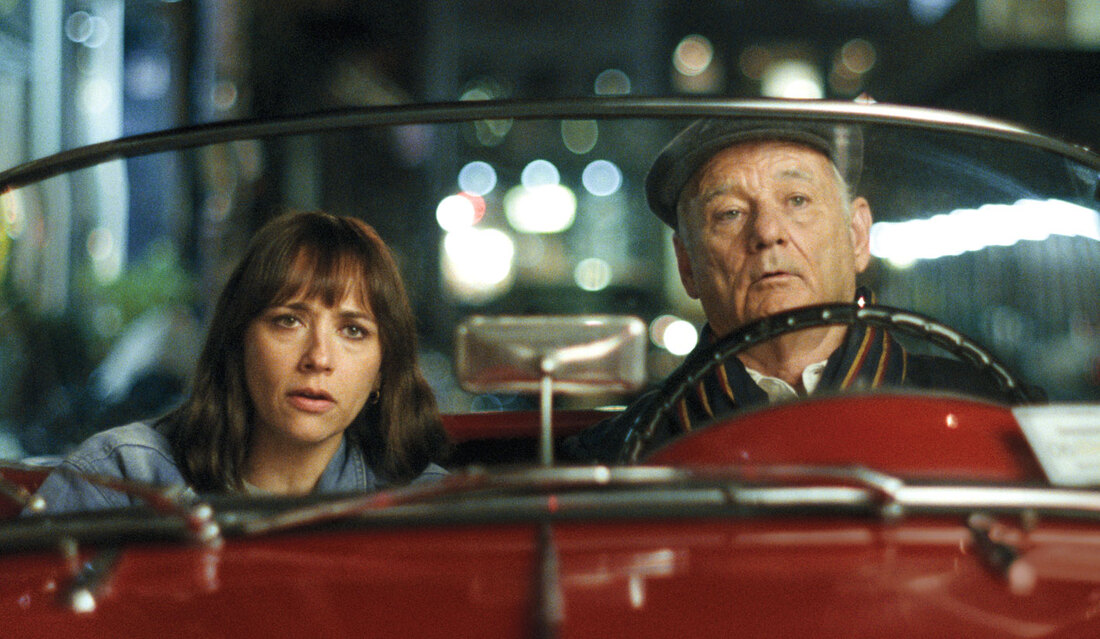
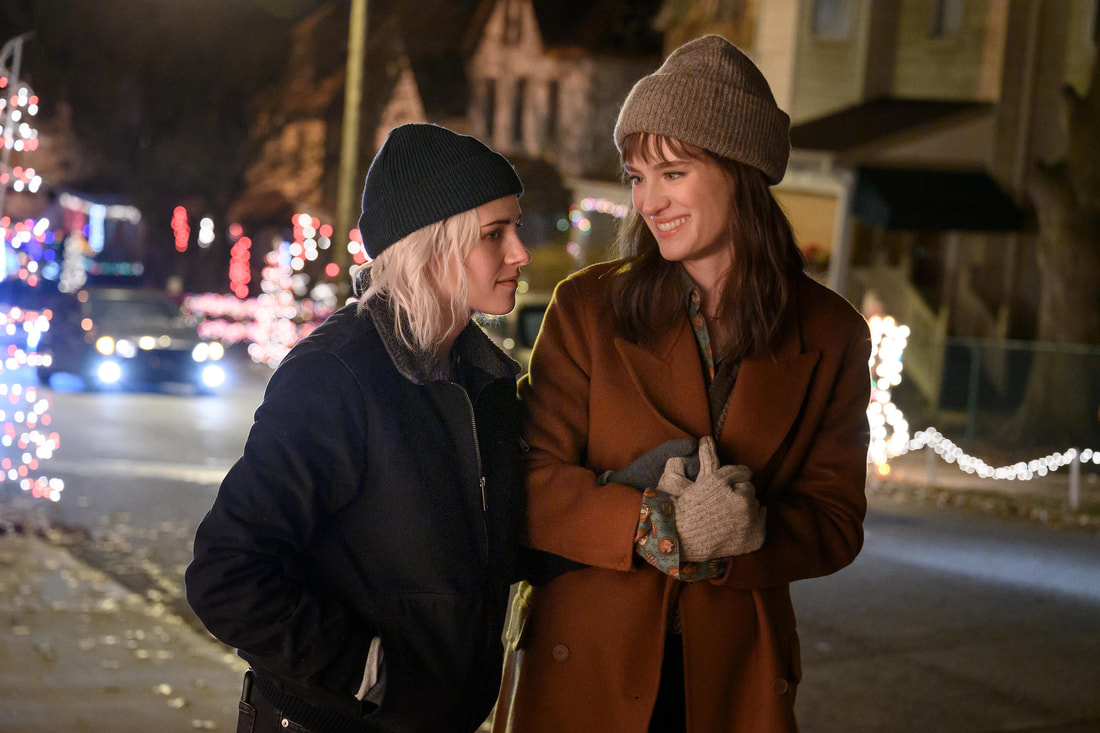
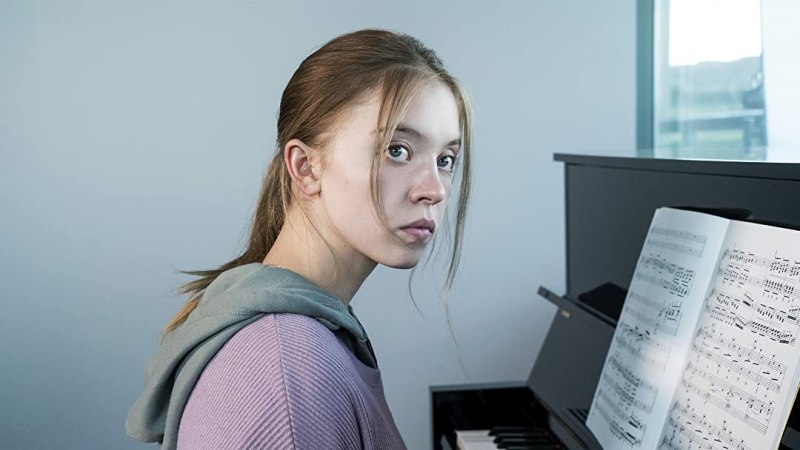
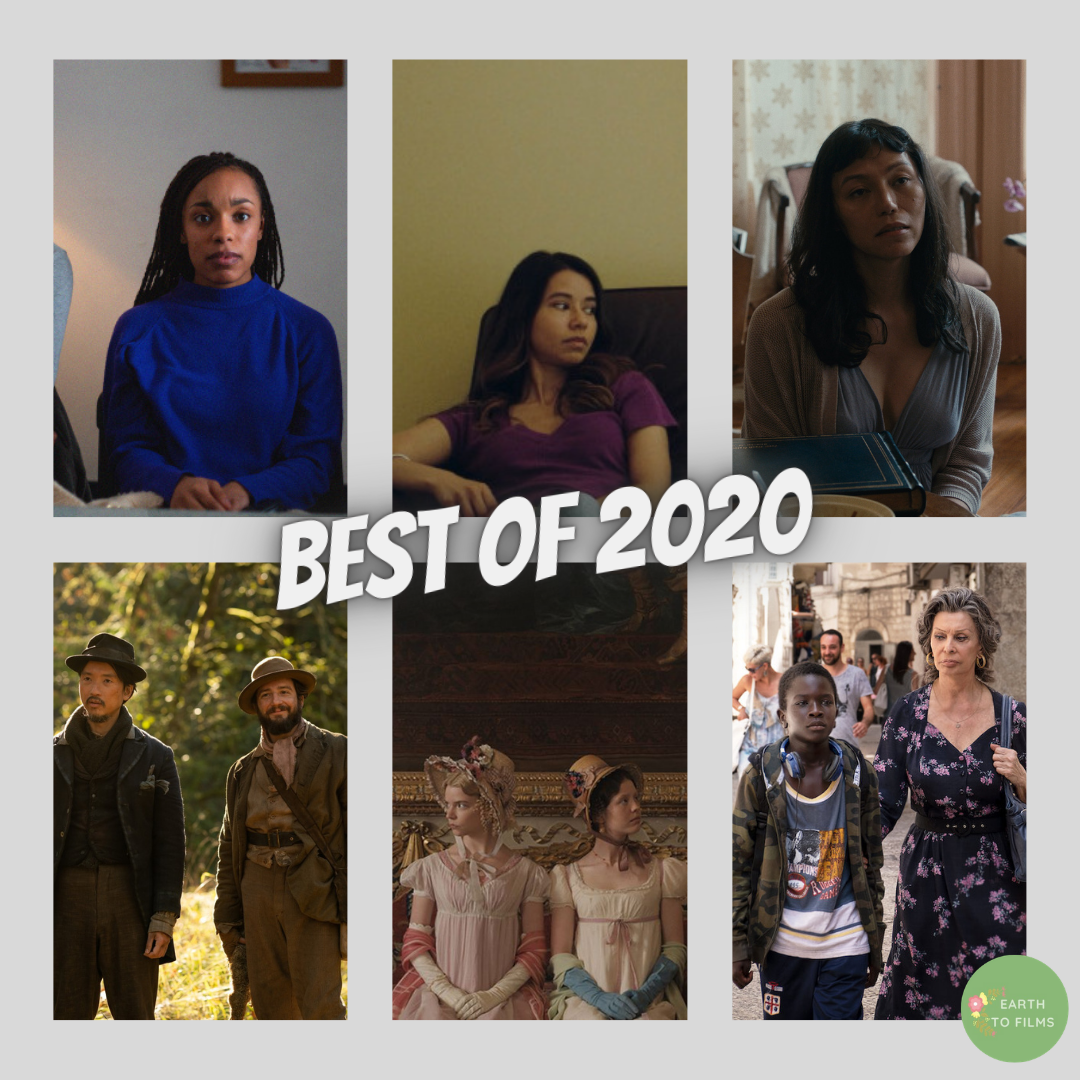

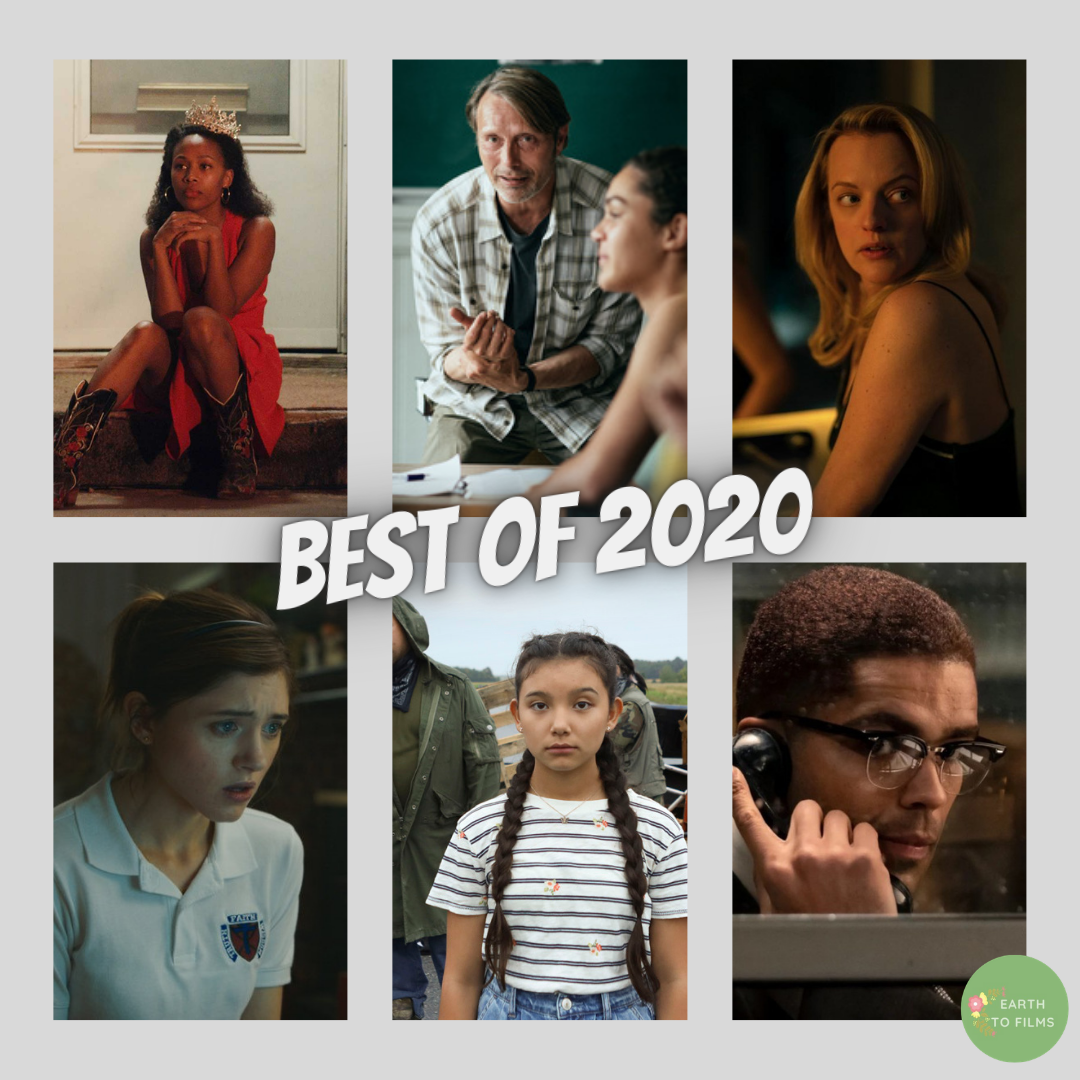
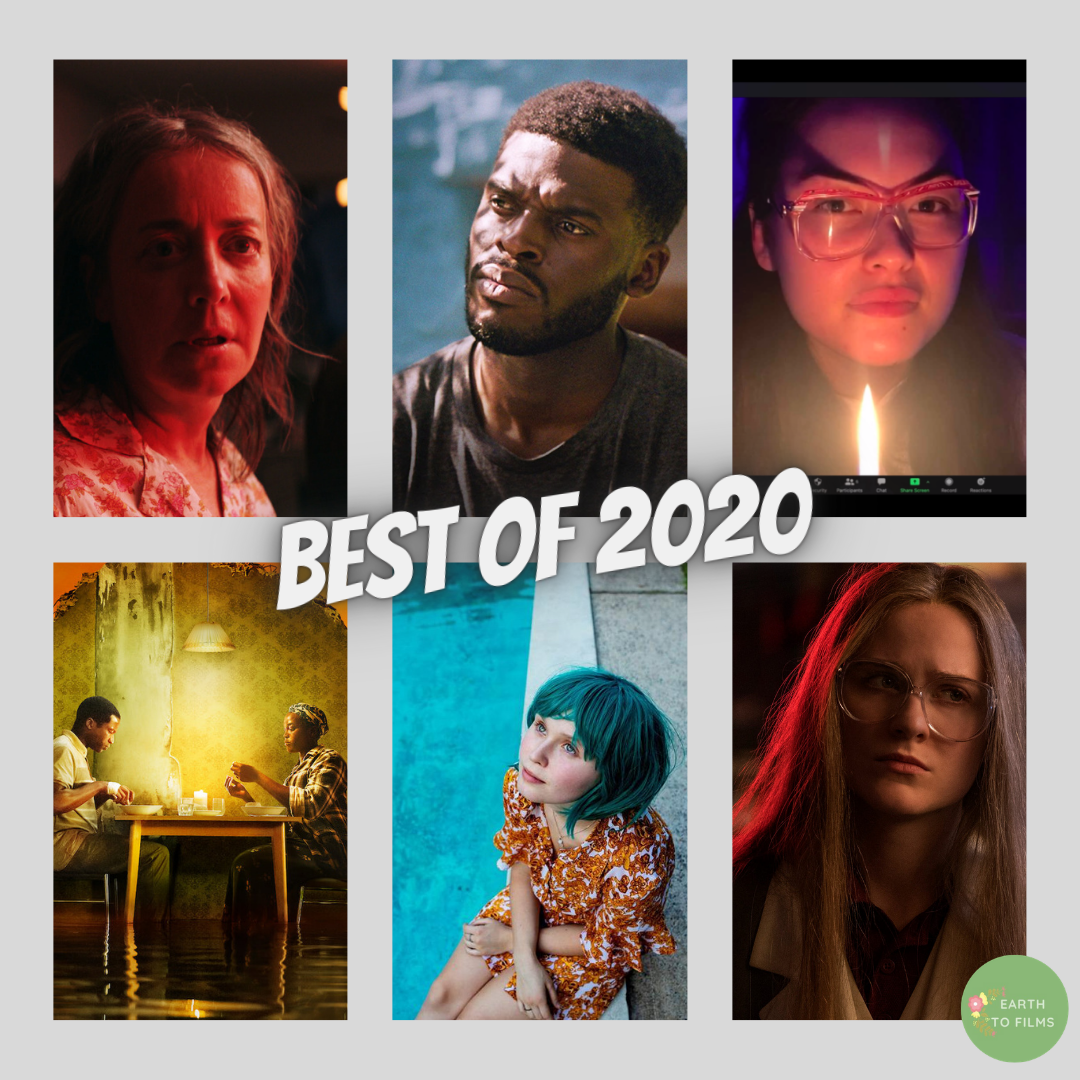

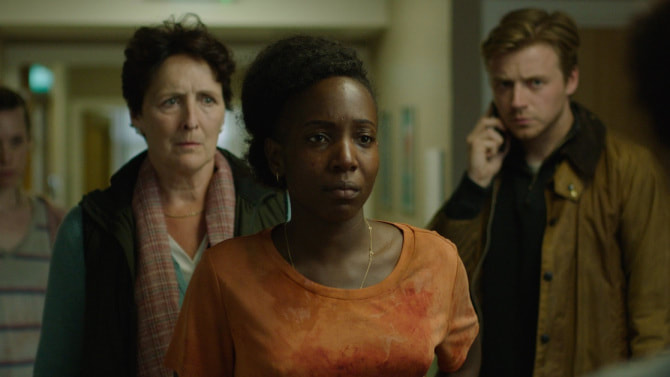
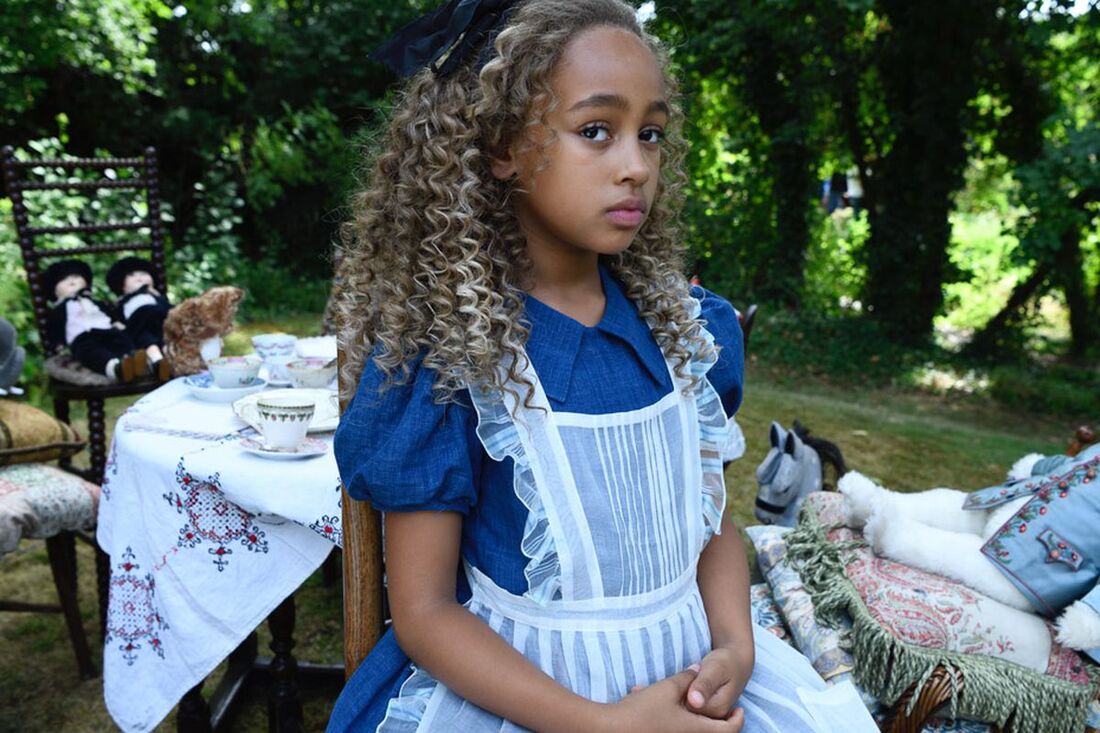
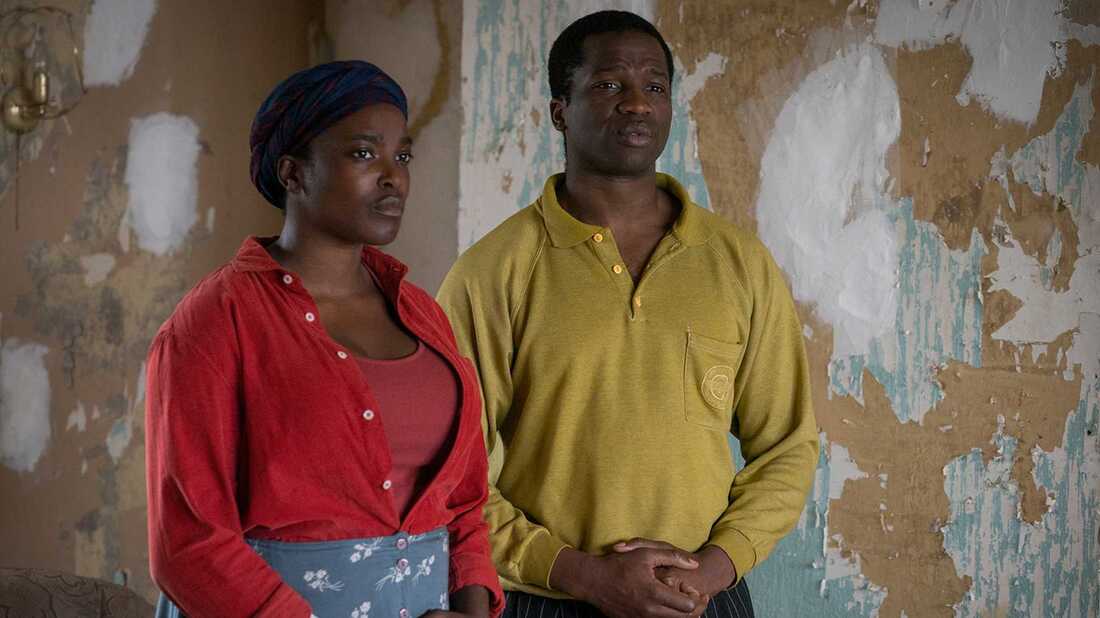
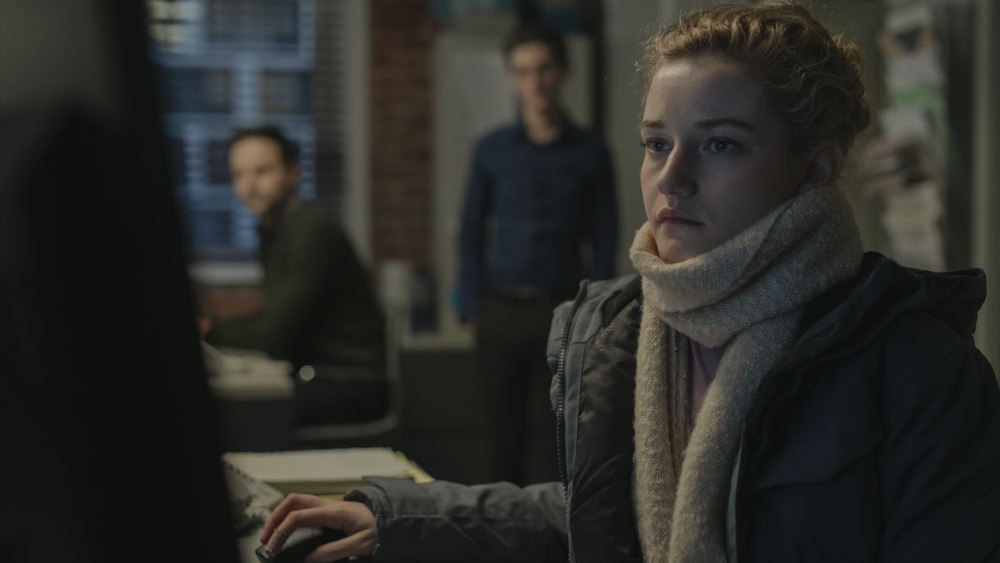

 RSS Feed
RSS Feed